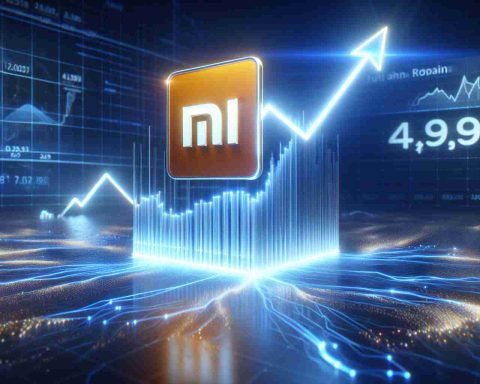- Warren Buffett exemplifies value investing through a focus on dividend stocks, which constitute 90% of Berkshire Hathaway’s portfolio.
- Buffett prioritizes companies with strong management that can sustain and grow dividends over high-yield options.
- His patient investment philosophy demonstrates that lasting wealth comes from holding quality stocks long-term.
- Berkshire Hathaway earns approximately $6 billion in annual dividends, with substantial contributions from a handful of companies.
- Kraft Heinz is a key example of a dividend stock showing resilience despite challenges, boasting a 5.52% yield.
- Historically, total market returns, including dividends, surged by over 1,400% between 1993 and 2022.
- Buffett’s strategy advises investors to invest wisely, hold their positions, and let dividends accumulate wealth.
In the fast-paced world of investing, few figures shine as brightly as Warren Buffett, a titan celebrated for his unwavering commitment to value investing. Imagine a strategy so powerful that it’s become the backbone of Berkshire Hathaway’s portfolio, where dividend stocks make up an astonishing 90% of its holdings. Yet, what is it about these steady streams of income that attracts Buffett and savvy investors alike?
Buffett doesn’t chase the flashy high-yield stocks. Instead, he zeroes in on companies with robust management that can not only sustain but grow dividends over time. His disciplined approach emphasizes the beauty of patience, illustrating that wealth can blossom when you hold onto strong stocks through market ups and downs. During his career, this method has translated into approximately $6 billion in annual dividends for Berkshire Hathaway, with seven companies alone contributing $4.5 billion.
Kraft Heinz Company (NASDAQ:KHC) serves as a fascinating case. Although it has faced challenges, including management shifts and a 20% slide in stock value, the company has been busy restructuring and optimizing its core brands. With a hefty dividend yield of 5.52%, Kraft Heinz shows resilience, returning $1.5 billion to shareholders this year alone.
The true power of dividend stocks is vividly demonstrated in historical returns—between 1993 and 2022, including dividends, total market returns skyrocketed by over 1,400%! As we dive into 2024, Buffett’s philosophy continues to resonate: invest wisely, hold steadfastly, and let dividends do the work.
Consider channeling Buffett’s insight into your investment strategy for a more prosperous future!
Unlocking Wealth: The Hidden Power of Dividend Stocks Revealed!
Understanding the Appeal of Dividend Stocks
In the dynamic landscape of investing, dividend stocks have carved a niche that appeals to both seasoned investors and newcomers alike. Warren Buffett’s legendary investment strategy hinges on this powerful asset class—a strategy that emphasizes steady income and long-term growth, particularly through companies that demonstrate solid management and an unwavering commitment to returning value to shareholders.
Features of Dividend Stocks
1. Consistent Income: Dividend stocks provide regular payouts to shareholders, creating a reliable stream of income.
2. Compound Growth: Reinvesting dividends can significantly accelerate wealth accumulation over time, thanks to the power of compounding.
3. Market Stability: Companies that pay dividends tend to be more stable and less volatile, often leading to less dramatic price fluctuations.
4. Inflation Hedge: Many dividend-paying companies increase their dividends over time, helping investors maintain their purchasing power amid inflation.
Use Cases for Dividend Investing
– Retirement Planning: Dividend stocks are particularly attractive for retirees seeking steady cash flow without selling off assets.
– Income Diversification: Investors looking to diversify their income streams can benefit from incorporating dividend stocks into their portfolios.
– Reinvestment Strategies: Younger investors can leverage dividends to purchase more shares, amplifying their future returns.
Pros and Cons of Dividend Stocks
# Pros:
– Regular Income: Provides a cash flow that can be used for reinvestment or personal expenses.
– Lower Risk: Generally seen as safer investments compared to growth stocks.
– Tax Advantages: Qualified dividends may be taxed at a lower rate than ordinary income.
# Cons:
– Limited Growth Potential: Companies that pay high dividends may not reinvest enough in growth opportunities.
– Market Sensitivity: Dividend stocks can be affected by interest rate changes, similar to bonds.
– Potential Cuts: Economic downturns can lead companies to cut or suspend dividends, impacting investor returns.
Market Forecast for Dividend Stocks
As we move into 2024, analysts predict a continued focus on dividend-paying stocks amidst economic uncertainty. With rising interest rates and inflation pressures, investors are likely to favor the stability that dividends offer. Market forecasts suggest that sectors such as utilities, consumer staples, and healthcare may continue to dominate the dividend landscape.
Insights on Buffett and Dividend Investing
Buffett’s staggering success—averaging $6 billion annually in dividends for Berkshire Hathaway—underscores his belief in the long-term value of dividends. By identifying and investing in companies that not only regularly pay dividends but also have the potential for growth, investors can mirror Buffett’s strategic approach.
Important Questions to Consider
1. What are the best dividend stocks to invest in today?
– Investors should look for companies with a strong history of dividend payouts, solid earnings growth, and a competitive advantage in their industry.
2. How can one reinvest dividends effectively?
– Utilizing a Dividend Reinvestment Plan (DRIP) allows shareholders to automatically reinvest dividends to purchase additional shares, compounding returns over time.
3. How do economic factors influence dividend stocks?
– Interest rates and inflation are pivotal; rising rates often make dividend stocks less attractive compared to bonds, while inflation may affect a company’s ability to maintain or grow dividend payouts.
Conclusion
Warren Buffett’s philosophy offers timeless wisdom: invest wisely, remain patient, and let dividends work for you. By embracing dividend stocks, investors can craft a robust portfolio designed to yield long-term returns.
For further insights and resources on dividend investing, visit Bloomberg for expert analysis and data on market trends.





















